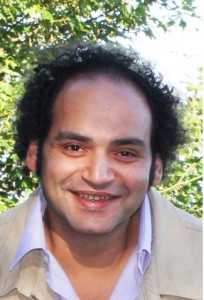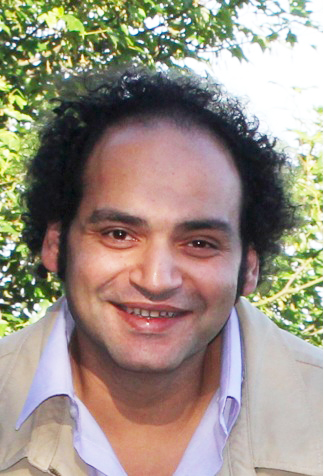 Ever since the ousting of Mubarak and the rise of the Islamic elite represented by the Muslim Brotherhood, the Salafis and other groups, the question of morality has always been on the table. The Islamists, like any other political force that identifies itself with religion, believe that the root of all ills of society is a lack of morality. Religion by its very nature preaches morality, but morals are a subjective thing.
Ever since the ousting of Mubarak and the rise of the Islamic elite represented by the Muslim Brotherhood, the Salafis and other groups, the question of morality has always been on the table. The Islamists, like any other political force that identifies itself with religion, believe that the root of all ills of society is a lack of morality. Religion by its very nature preaches morality, but morals are a subjective thing.
The idea that a collective code of morality can be implemented in society and reflected within the state does not belong to religion; it originates from the ideas of constitutions and social contracts. Religions by default are biased to their own values and principles, and eventually, they are biased to their own believers. Claiming that the morals of society should come through a specific religious belief automatically creates basis for discrimination not only between believers and non-believers, but also between pious and non-pious, radicals and moderates and eventually creates labels and unequal statuses for citizens that are entitled to equal rights.
Islamists in Egypt have been obsessed with the idea of implementing an Islamic code of morals. However, the problem is not with an Islamic code of morals (which is not very alien to most Egyptian values really), the problem is whether the method of this implementation is inclusive and whether the timing is relevant. Another important question is what is the problem to which morality is an answer? This last question has been one of my major problems with the Muslim Brotherhood’s famous slogan “Islam is the solution.”
I believe that identifying the solution requires first understanding the problem, and second deciding how exactly can the solution remedy it. Preaching an Islamic code of morals does not address the essential problems Egypt and Egyptians are facing.
I entertained those ideas as I was reading the statements made by President Morsy last week during prayer. Apart from my recurring problem with the president, who makes his statements from mosques addressing the select few who actually managed to make it to the mosque where he decided to pray, the president’s rationale on the issue of closing the shops early struck me as strange to say the least.
How can an issue that has to do with rates of unemployment, people’s ability to make a living, the logistics of everyday life and the overall economic activity in the country, how can such an issue be put on the platform of sleeping early and waking up early for prayer? This is not a critique of people waking up early for prayer; it is a critique of how irrelevant the President’s remarks were.
In the same week, the public prosecutor banned porn sites and requested that the government take the necessary measures to block them. The man who is responsible for several inefficient investigations that led to criminals going free, the man who is supposed to look out for the rights of Egyptians within the judicial system, this man actually found the time to come to a decision on pornography sites. This is what the public prosecutor is busy investigating, porn!
In the mean time, during the demonstrations last Friday for the implementation of the Islamic Sharia, there was pushing and pulling when a number of those who participated in the demonstration decided they did not like some of the graffiti in Mohamed Mahmoud street.
The three incidents may appear like they are not related, but in fact, they very much are. Morsy’s statements, the public prosecutor’s decision and the conflict over the graffiti being inappropriate all point to one thing; there is a group in society that decided they know the proper code of morals that everyone should adhere to.
Morality is not something that you impose on people, it is something that individuals interpret and decide to abide by. Religion can indeed be an answer, but only if the believer wants to see it as one. Poverty, unemployment, illiteracy and marginalisation are not problems that you solve when you sleep early and wake up early for prayer, or when you block porn sites.
Before someone rises to deliver the magic solution they should ask themselves whether they actually understand the problem.





